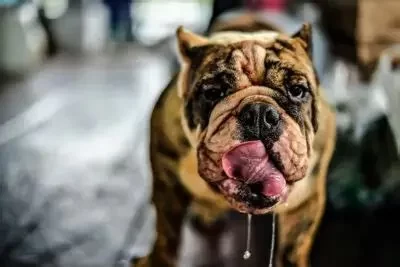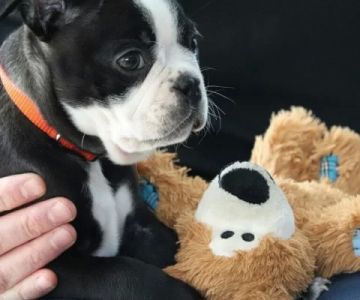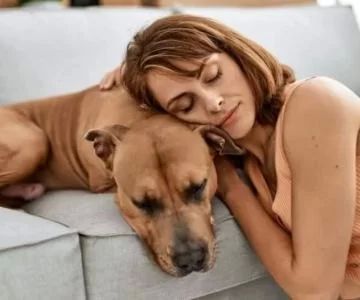Understanding Dog Excessive Drooling at Night: Causes and Solutions
It's not uncommon for dog owners to notice their furry friends drooling at various times, but when the drooling occurs specifically at night, it can raise some questions. Excessive drooling in dogs, particularly during the nighttime, can be caused by a variety of factors ranging from minor irritations to more serious health concerns. In this article, we will explore the potential causes behind dog excessive drooling at night, the steps you can take to address the issue, and when it's time to consult with a veterinarian.
- Causes of Dog Excessive Drooling at Night
- Health Issues That Can Cause Drooling
- How to Manage Excessive Drooling in Dogs
- When to Seek Veterinary Help
Causes of Dog Excessive Drooling at Night
Excessive drooling at night can be a bit alarming for dog owners, especially if the dog is normally not prone to it. There are several factors that could lead to increased drooling during the evening hours, including:
1. Anxiety or Stress
Just like humans, dogs can experience anxiety, especially when separated from their owners, or if they are in unfamiliar environments. This anxiety can sometimes manifest as excessive drooling, particularly when they are winding down for the night. Common triggers include loud noises, changes in routine, or being left alone for extended periods.
2. Teething in Puppies
If you have a young puppy, teething might be the cause of excessive drooling. During the teething process, puppies experience discomfort, which can lead to drooling. While this is typically a temporary issue, it’s important to monitor your puppy’s health and behavior closely.
3. Oral Issues
Dental problems such as gum disease, tooth decay, or mouth infections can cause dogs to drool excessively, especially at night. If your dog seems to be drooling more than usual and has bad breath or difficulty eating, oral health could be the culprit. Regular dental check-ups are essential for your dog’s overall health.
4. Foreign Objects in the Mouth
If your dog has gotten something stuck in their mouth, such as a piece of food, a toy, or even a foreign object, it can lead to drooling. This might be especially noticeable at night when the dog is resting or trying to sleep, and it might cause them to drool as a result of irritation.
5. Nausea or Upset Stomach
Dogs that are feeling unwell or have an upset stomach may experience nausea, which can result in excessive drooling. This might be accompanied by other symptoms such as vomiting, loss of appetite, or lethargy. If your dog is drooling excessively and showing signs of discomfort, it could be due to an upset stomach or gastrointestinal distress.
Health Issues That Can Cause Drooling
In some cases, excessive drooling at night can be a sign of more serious health concerns. These conditions should be addressed as soon as possible to ensure your dog’s health and comfort:
1. Canine Rabies
One of the more serious causes of drooling in dogs is rabies, although it’s a rare condition. Rabies can cause excessive drooling, difficulty swallowing, and other behavioral changes. If your dog has been exposed to wildlife or other animals that could carry rabies, seek immediate veterinary assistance.
2. Toxin Ingestion
If your dog has ingested something toxic, such as certain plants, chemicals, or spoiled food, drooling may be a symptom. In cases of poisoning, drooling is often accompanied by other symptoms such as vomiting, diarrhea, or tremors. If you suspect your dog has ingested something harmful, contact your veterinarian immediately.
3. Epilepsy or Seizures
Seizures, which are sometimes associated with epilepsy, can lead to excessive drooling. If your dog has a seizure, you might notice drooling before, during, or after the episode. Seizures are a serious medical condition, and it’s essential to work closely with your vet to manage this issue.
How to Manage Excessive Drooling in Dogs
If your dog’s excessive drooling is mild and not linked to a serious health issue, there are a few steps you can take to help manage the condition:
1. Provide Comfort and Reduce Anxiety
If anxiety is the cause, ensure that your dog has a comfortable, quiet space to relax at night. Providing chew toys, calming treats, or even a soft bed can help alleviate stress. In some cases, consulting with a professional animal behaviorist may help to address deeper anxiety issues.
2. Keep Your Dog’s Mouth Clean
Regular brushing and dental care can help prevent oral issues that may lead to drooling. If you notice signs of tooth decay or gum disease, be sure to schedule a veterinary appointment for an examination and potential treatment.
3. Monitor for Other Symptoms
If your dog is drooling excessively, keep an eye out for other symptoms such as lethargy, vomiting, or changes in behavior. If you notice any concerning changes, it’s important to contact a veterinarian for advice or treatment.
When to Seek Veterinary Help
While some cases of excessive drooling at night may be harmless, it’s important to know when to seek professional help. If your dog’s drooling is accompanied by symptoms such as vomiting, lethargy, difficulty swallowing, or signs of pain, it’s time to consult with a veterinarian. Your vet will be able to conduct a thorough examination and determine if any underlying health issues are present.
If you are unsure of what might be causing your dog’s excessive drooling at night, don’t hesitate to reach out to the professionals at Hidden Brook Veterinary. Our team of experienced veterinarians can help you get to the bottom of the issue and ensure your dog stays healthy and happy.











